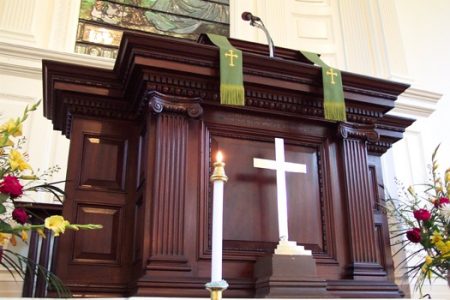Harry Blamires (1916-2017 ) started writing through the encouragement of C. S. Lewis, his tutor at Oxford. He has taught both in England and the United States as a professor of English and English literature. He is the author of more than thirty books in various genres including theology, education, English literature, and fiction.
In the following excerpt, Blamires offers a helpful reminder. Opposition to the Church is nothing new. One tactic of the modern age, however, is to attack the very foundation of the Church, calling her very existence into question. Such critics should be answered—not by clever slogans or technical language, but with the common sense reality that the Church is God’s idea—not man’s.
We must not talk—and we must not allow critics of the Church to talk—as though the Apostles sat round a table in the early days and one of them said, “I propose we have a Church,” and another said, “I second that,” and it was carried nem. con. [without opposition]. For the Church was not manufactured to a human plan. The Church happened. God made it, not man. He came to earth and left the Church behind him.
Therefore to talk of not seeing the need for the Church is like talking of not seeing the need for the moon. The Church, like the moon, is not a human project, but a divine creation. It is before us. God put it there. Speculators might argue that, in his omniscience and wisdom, God might have thought up some different instrument of salvation, just as he might have devised a different means of lightening our darkness at night. But where does that kind of speculation get us? We are not concerned with what God did not do: we are concerned with what He did. And one of the things he did was to come to earth and establish the Church.1
Footnotes :
1 Harry Blamires, The Christian Mind: How Should a Christian Think? (Ann Arbor: Servant Publications, 1997), 119.





